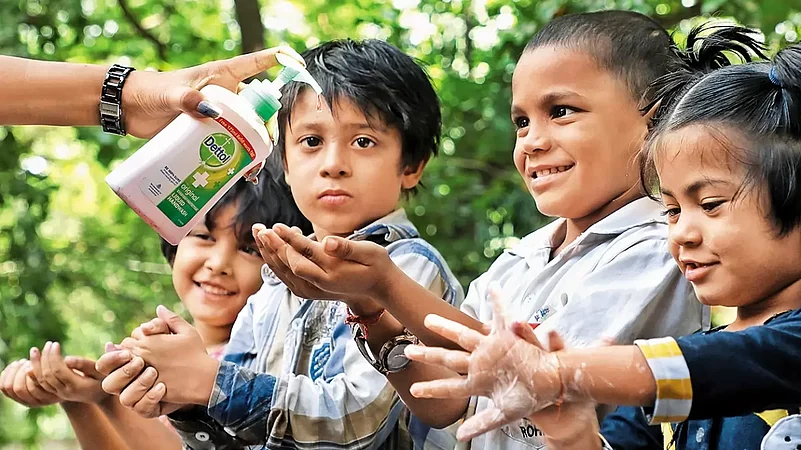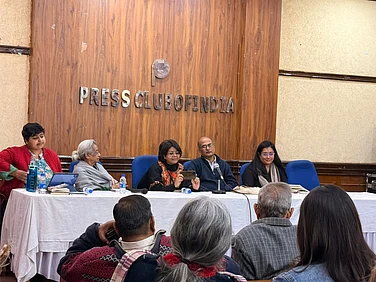India has made tremendous progress in areas related to health and hygiene in recent times. Individuals are more aware of the needs for personal hygiene, healthcare professionals and institutions can tackle global crises and manage thousands of patients at the same time, policy makers take proactive decisions and react faster, and civil society and businesses, along with other stakeholders, contribute to health literacy. Still, as the latest World Health Organization (WHO) report reveals, diarrhoea and respiratory infections kill millions of Indians each year, and India accounts for 30% and 18%, respectively, of worldwide population that suffers from these conditions. India has a demographic dividend, which is at risk of suffering from poor health due to entirely preventable health conditions and infectious diseases.
The government of India has been proactive in advancing initiatives that address these problems of health and preventable diseases upstream, such as the Swachh Bharat Mission and the Poshan Abhiyaan programme that are addressing the basic issues of poor hygiene, sanitation, and nutrition. The Ayushman Bharat Mission and the Pradhan Mantri Jan Arogya Yojana (PMJAY) have also been instrumental in providing millions of poor citizens with protection from catastrophic health expenses, by making universal health insurance a reality for the poorest of the poor.
Every country realises that the healthcare infrastructure is cracking and creaking, splitting at the seams. A recent report on health and wellbeing by the Economist Intelligence Unit, which was sponsored by Reckitt in the UK, states, “It has become socially and economically unsustainable to maintain the traditional, ever-advancing delivery of care.” This reality requires all stakeholders, governments, not-for-profit sector and corporates to rethink traditional models of care, focusing on delivering desired outcomes at scale, sustainably.
Self-care is the new buzz phrase in healthcare lexicon. It entails proactive and reactive actions that “people take to promote or maintain their health and wellbeing”. It is what you and I do to prevent and deal with illnesses. Although self-care is ingrained in each human, reflects in daily choices and lifestyle decisions, and is an old concept, it must become a critical part of national policies and needs to be enmeshed with formal services. Encompassing hygiene (general and personal), nutrition (type and quality of food), lifestyle (physical and emotional), environment (living conditions and habits), socio-economic factors (incomes and beliefs), and self-medication, self-care has the potential to become a key enabler of good health behaviours that can prevent problems.
Reckitt’s programmes under the Dettol Banega Swasth India initiative have been aggressively adopting upstream thinking across its initiatives for hygiene, health and nutrition. By ensuring that programme priorities are aligned with national priorities, the Dettol School Hygiene Programme has worked with state governments and the central government to reach 24 million school children with hygiene education. Also, the recently launched Dettol Hygiene Olympiad seeks to enhance in children analytical and problem solving skills to promote hygiene practices.
Similarly, incorporating self-care into a maternal and child focused intervention that focuses on the first 1000 days of life, it has reached 4.6 million new moms, and achieved zero deaths in intervention sites. By ensuring that aspirational districts and blocks (as recognised by NITI Aayog) are part of the geographies covered by the Dettol Diarrhoea Net Zero programme, the administration and stakeholders at multiple levels are aware of Reckitt’s commitment to leverage its leadership in the hygiene space to save under-5 lives and achieve net zero diarrhoea deaths in the state of Uttar Pradesh.
A healthy nation is a wealthy one. The prospects of an economy improve exponentially if citizens are better off physically, mentally and emotionally. It makes huge economic sense if people, businesses, communities and policy makers invest in ensuring people’s equitable access to healthcare products and services. Thus, nations need to invest more in preventive, rather than curative, healthcare strategies and policies, that prioritise last mile and vulnerable populations. If we start early, the benefits are sustainable, long-term, and have multiplier effects.
Proactive hand hygiene contributes immensely to lower levels of diseases, leads to better wellbeing, and aids GDP growth rates. The returns on investment are formidable and multi-fold. Reckitt’s expenditure on the School Hygiene Education Programme generated a social value of 1:33-52, which implies 33-52 times for every rupee spent. The GDP multiplier in health-related areas is 2.5X – every rupee spent supports an additional Rs 1.5, according to a report by Oxford Economics. Stakeholders need to spread the message of hand hygiene expansively so that it percolates to the lowest levels, and help citizens to understand the benefits.
Ravi Bhatnagar Director, External Affairs & Partnerships, South Asia, Reckitt

























